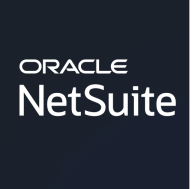

Oracle E-Business Suite and NetSuite OneWorld compete in the enterprise resource planning software category. Oracle E-Business Suite has the upper hand due to its comprehensive module integration and extensive customization capabilities, whereas NetSuite OneWorld is favored for its flexibility and ease of use, especially for mid-sized businesses.
Features: Oracle E-Business Suite offers comprehensive management of finance, HR, and supply chain through integrated modules. It provides robust customization options, mobile support, and facilitates international operations. Its extensive integration of financial modules enhances user experience significantly. NetSuite OneWorld excels in managing multiple subsidiaries and offers flexibility in handling financials and global operations. Its strong customization ability makes it adaptable to growing businesses.
Room for Improvement: Oracle E-Business Suite users suggest improvements in user interfaces, integration between acquired modules, and mobile functionality. The system's complexity can make customization challenging without specialized knowledge. NetSuite OneWorld users recommend enhancements in production planning and integration features, along with addressing data accuracy issues. Comprehensive analytics capabilities are also suggested to strengthen the platform.
Ease of Deployment and Customer Service: Oracle E-Business Suite's deployment is resource-intensive and better suited for large organizations, supporting on-premises and hybrid cloud models. Its customer service is knowledgeable but can vary. NetSuite OneWorld, being cloud-based, offers faster deployments with lower infrastructure costs. It provides efficient and responsive customer service, enhancing user experience.
Pricing and ROI: Oracle E-Business Suite involves significant investment with complex licensing, offering good ROI for users maximizing its capabilities. NetSuite OneWorld provides competitive pricing for small to medium businesses with predictable costs due to its cloud-based model. Users appreciate the flexible licensing and reduced infrastructure costs, contributing to a favorable ROI.
As it is not a multimillion-dollar ERP system, ROI can be achieved within six months.
I have definitely seen ROI from Oracle E-Business Suite in terms of cost savings and time savings.
Their response is very fast, regardless of the language used, like Spanish, French, or Portuguese.
There was no real ownership on Oracle's part.
It allows you to scale across various modules and functionalities without losing access to essential features, even if they are not used immediately.
I would say it's fairly easy to scale.
The solution has good scalability, which I would rate around eight out of ten.
I have more experience with highly scalable technologies like Databricks.
It is the most stable feature on the Intuit side.
The system is very stable.
The performance could be improved as this is a 100% software as a service platform.
If Oracle improves their ECC for better dashboarding, it would significantly enhance the system features, making it more attractive to users.
I should be able to customize the screen or application without needing technical support.
We are moving to the cloud and are looking at the cloud version of it for the cost of ownership and a more modernized integrated platform.
In Latin America, discounts can be as high as seventy percent.
Each license costs a significant amount.
Oracle pricing is comparatively high to other vendors.
The multicurrency reevaluation offered by OneWorld enables consolidation from different branches, such as country or continent levels, making it a powerful feature.
Oracle E-Business Suite provides standard APIs for integrating with custom applications.
Oracle E-Business Suite provides everything needed in an ERP.
It allows us to normalize all of our systems into a single database.
| Product | Market Share (%) |
|---|---|
| Oracle E-Business Suite | 5.1% |
| NetSuite OneWorld | 0.5% |
| Other | 94.4% |


| Company Size | Count |
|---|---|
| Small Business | 10 |
| Midsize Enterprise | 3 |
| Large Enterprise | 2 |
| Company Size | Count |
|---|---|
| Small Business | 43 |
| Midsize Enterprise | 33 |
| Large Enterprise | 112 |
Oracle E-Business Suite (EBS) is considered the most extensive offering of amalgamated worldwide business applications available. Oracle EBS helps facilitate medium to large business enterprise organizations with the ability to enhance critical decision-making processes, streamline business procedures, minimize costs, and improve overall performance and productivity.
Oracle EBS runs as a complement to Oracle Database software. The applications serve to automate such processes as supply chain management (SCM), human resource management (HRM), customer relations management (CRM), project portfolio management (PPM), financial management, service management, and more.
Oracle EBS runs best in the cloud. It is a cost-saving option that offers greater productivity and can immediately and easily respond to changing dynamic business needs with an intuitive, automated scalable cloud infrastructure.
Below are some of the valuable features of popular application offerings available within Oracle EBS:
Supply Chain Management (SCM): Every possible supply chain process can be fully automated, from planning, creation, and appropriation to development and fulfillment, delivering a comprehensive solution application to ensure organizations have robust, intelligent-driven, value-added chains. Some applications include:
Human Resource Management (HRM): The solution offers a sturdy group of outstanding human resource processes that enable users to improve productivity, enhance overall business performance, and lower TCO. Some processes include:
Customer Relations Management (CRM): This application provides for a streamlined, unique global gathering of information that will ensure all selling channels are continually following the organization's objectives and protocols. Some features include:
Project Portfolio Management (PPM): Oracle EBS provides a comprehensive, full lifecycle offering of project and portfolio management. Users get a single fully transparent view of all project-related ventures coupled with a superb performance process that grants users the ability to choose the best, most dynamic portfolio ventures.
Financial Management: Users are able to perform more effectively, improve productivity and efficiency, develop productivity tools and integrated performance management, and develop processes for shared services to reduce overall operating costs. Some features include:
Service Management: This application allows users access to the best data necessary to provide correct, precise, reliable information to their clients to ensure that every expectation is exceeded and consistently satisfied.
Reviews from Real Users:
Kopano R., Freelancer at a tech services company, says, “What I found most valuable in Oracle E-Business Suite is the patching because it is straightforward. As long as you follow Oracle's best practices, you are able to finish the task of patching without a problem. I like that it's also easy to add products, e.g. if you want to add on financials, you can, or if you don't have financials, you can expand on that. I like that Oracle E-Business Suite is really scalable.”
Mohammed G., Senior Oracle Application Consultant at a comms service provider, writes, “Oracle E-Business Suite consists of a lot of streams, such as financial and HR processes of the enterprise companies. We are using most of the Oracle financial modules, and we have an Oracle stream, FI procurement stream, and HR streams, which have a lot of applications. Oracle E-Business Suite has over 20 different modules to choose from, it is comprehensive. Additionally, the integration is very good. “
We monitor all ERP reviews to prevent fraudulent reviews and keep review quality high. We do not post reviews by company employees or direct competitors. We validate each review for authenticity via cross-reference with LinkedIn, and personal follow-up with the reviewer when necessary.